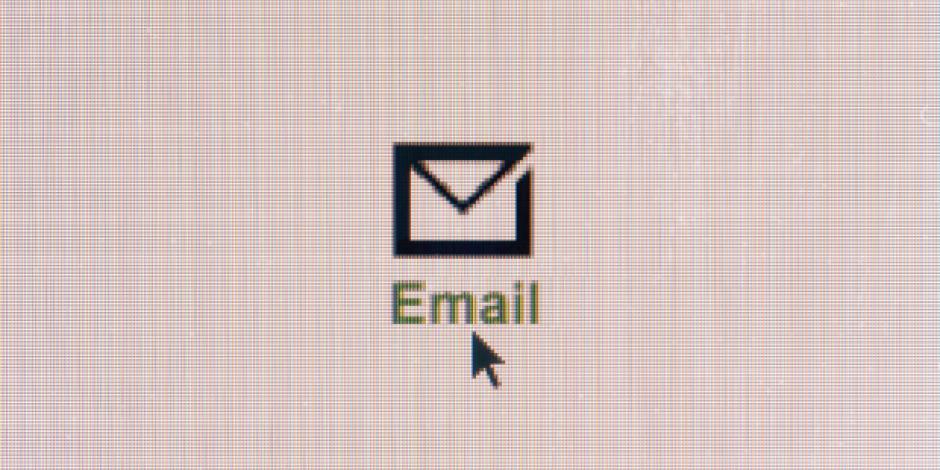Yes
“There’s no way around email for key communication”
(Frank Strzyzewski)

Email has characteristics that are as yet unchallenged by new technologies. It’s an open Simple Mail Transfer Protocol (SMTP), not controlled by any single country, corporation or secret service. If a company replaces email with, for example, WhatsApp, you lose that openness. And what happens if WhatsApp doubles its price?
Email is interwovenverflochten, verknüpftinterwoven with modern e-commerce, where we use it for identification and communication, for push channelPush-Kanalpush channels and for B2C and B2B communication. So why to abandon sth.etw. aufgebenabandon it at work?
We are seeing more in-house and team communication taking place via chat and collaboration tools. It’s possible to replace email with, for example, Slack. But what if you work as part of an international team that includes other companies and countries that use different platforms?
In the next couple of years, HTML5 will deliver a worldhier: Fülleworld of interaction in email, with embeddedintegriertembedded video, audio, etc. I expect more activity relating to email on mobile devices. One or more tablet or mobile phone manufacturers will surely come up with an HTML5 email client, and I expect Microsoft to develop Outlook as a safe channel for HTML5.
In future, you may not even know whether it’s a WhatsApp message, email, text message or whatever. But SMTP is still the common denominatorgemeinsamer Nennercommon denominator and, in one way or another, collaboration tools have to adapt and integrate email and work with its shortcomingUnzulänglichkeit, Defizitshortcomings. There’s no way around email for key communication.
Email can be a distractionAblenkungdistraction at work; however, we see the same behaviour with mobile phone use and chat tools. If email is being used in the wrong way, people need to be managed better. It’s easy to to dedicate sth. to sth.hier: etw. für etw. aufwendendedicate two hours a day to working on emails, and the rest to doing other work.
Email will be challenged, but we hardly have any clients who have stopped using email, because they don’t have a better alternative. At events and conferences, people always ask whether we really need email. But when I ask how many of the audience have stopped using email, or plan to do so, I’ve never seen anybody put their hand up. The “email-is-dead” discussion has been going on for ten years now — and email is still here.
Frank Strzyzewski is an email marketing expert, author, lecturer and CEO of XQueue GmbH
No
“Email is used as a way to avoid interpersonal communication”
(Chris Green)

Email has lost its way mainly because of oversaturationÜbersättigungoversaturation, even in the B2B sector. The sheer volume of email makes it impractical to manage effectively. Trying to find that one per cent of useful content is time-consuming and extremely frustrating. The technology isn’t necessarily at fault; people simply use email more and more inappropriatelyunangemessen; hier: im Übermaßinappropriately, making it more and more ineffective.
We need to rethink workplace communication and get people talking to each other again. I have seen offices where people sit next to each other and never speak, but send each other 50 emails a day. By getting up and walking three metres across a room to ask somebody a question, you can resolve sth.etw. klärenresolve a query(An-)Fragequery in 60 seconds and save seven or eight emails. We have to get people to stop using email as a way to avoid interpersonal communication. It is also important to to curb sth.etw. eindämmencurb the use of email outside designatedhier: festgelegtdesignated work hours.
In the past three to five years, instant messagingsofortige Nachrichtenübermittlunginstant messaging has become a valuable business tool in place of email, bringing the immediacy back to communication. This is largely because of developments in technology, things such as the integration of Skype into platforms like Office 365. Services such as Jabber and Zoom are doing well, as are social networking platforms in the workplace, like Yammer and Facebook.
It’s about people finding the most appropriategeeignetappropriate way to talk to people. People still send emails for something urgent, when an instant message or something more immediate would be much more appropriate.
Email has become a form of tick box (UK)Kontrollkästchentick-box communication: if you send an email, you assume the issueFrage, Sachverhaltissue has been dealt with. And people use their inboxPosteinganginboxes as filing cabinetAkten-, Ablageschrankfiling cabinets, which has implicationAuswirkungimplications for security and information management. Email has a future only if we are more strategic in how and where we use it. We’ve got to be more to be astute about sth.mit etw. klug umgehenastute about all of our communication, to be able to identify and use the right platform at the□ right time. There’s a time for email and a time for instant messaging, and there’s also a time to get off your to get off one’s backside (UK ifml.)den Hintern hochkriegenbackside and go and speak to people.
Chris Green is an award-winning technology commentator and head of media services UK at LEWIS.
Neugierig auf mehr?
Dann nutzen Sie die Möglichkeit und stellen Sie sich Ihr optimales Abo ganz nach Ihren Wünschen zusammen.



